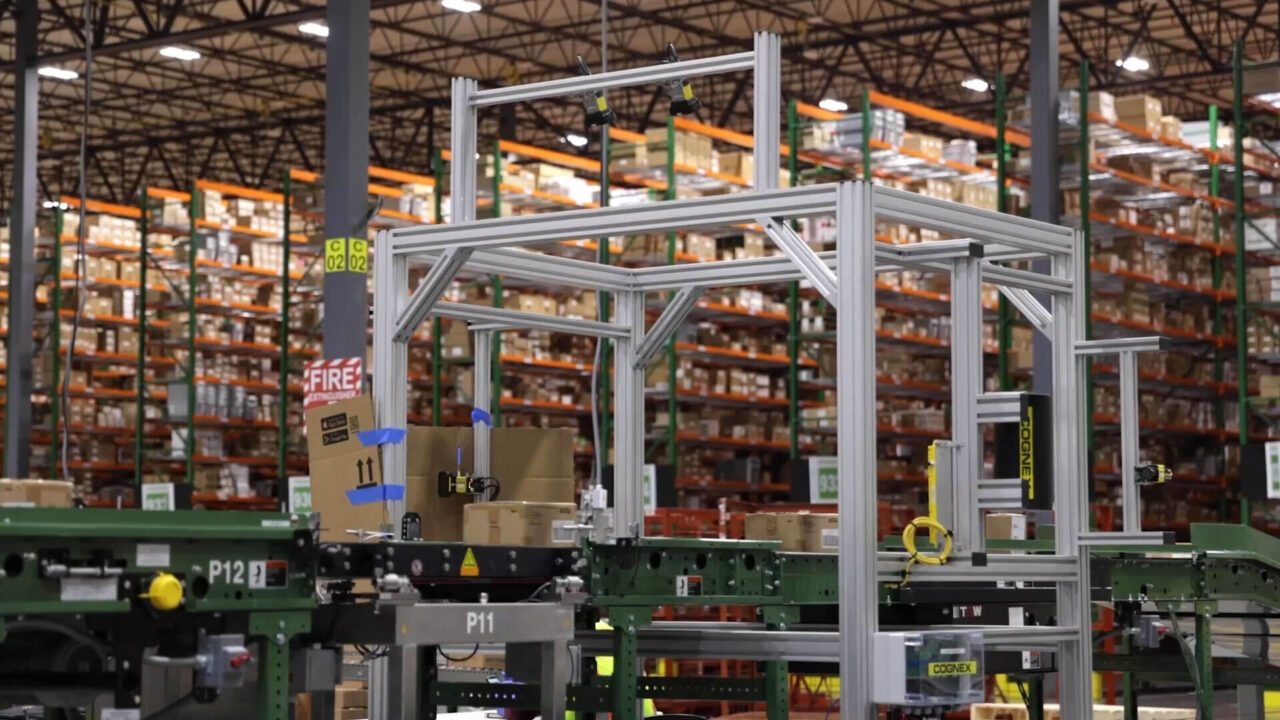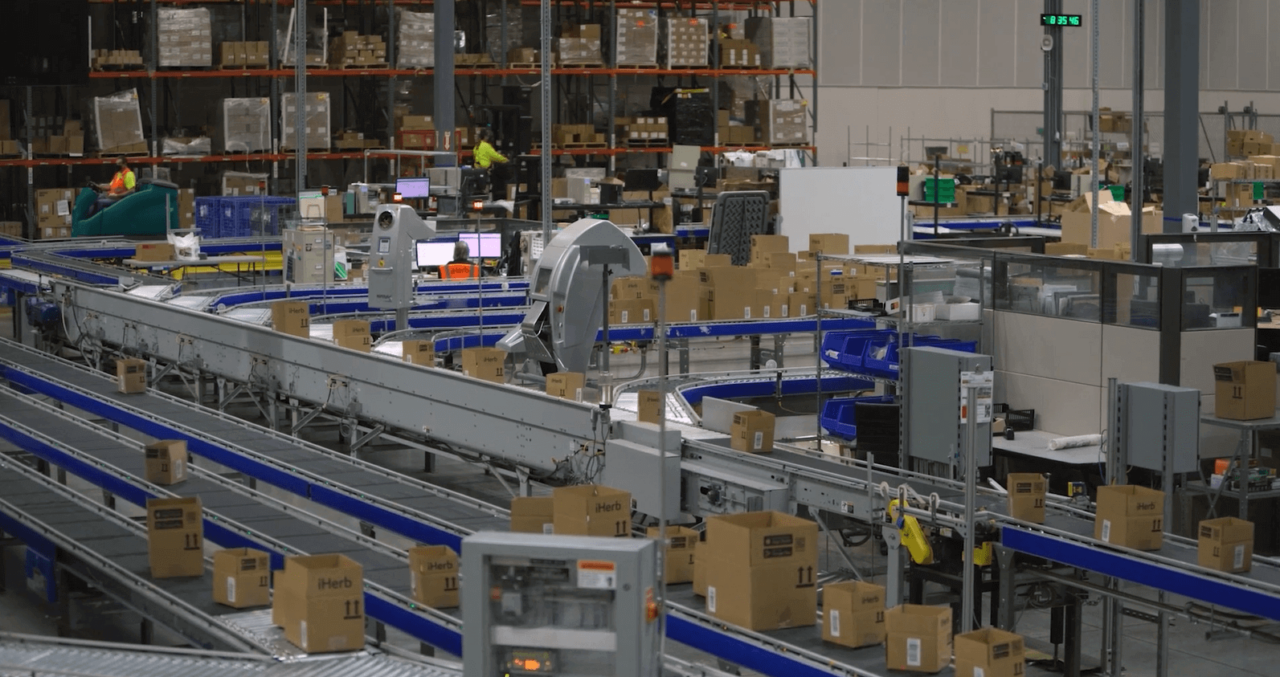In the past few years there’s been a growing trend toward cloud-based hosting of warehouse management system (WMS) software. Faster internet speeds, more reliable connectivity, and lower prices for more data storage than ever before have contributed to the expansion of this platform for inventory management and control.
According to a recent report from Grand View Research – which valued 2020’s global WMS market size at $2.64 billion and forecasted it to increase at a compound annual growth rate (CAGR) of 15.3% by 2028 – more companies are turning to cloud-hosted WMS.
The report noted: The cloud segment held the highest revenue share of more than 55% in 2020 and is expected to emerge as the fastest-growing segment from 2021 to 2028. Cloud-based technology has revolutionized the way businesses function. When deployed on the cloud, WMS offers a reduction in the upfront costs of companies and drastically increases warehouse efficiency.

Historically, WMS software was hosted on servers within the warehouse or distribution center facility itself. That’s certainly still an option today as well. Indeed, most WMS vendors offer their customers a choice of hosting location – either in the cloud or on-premises – although there is a small segment of online only WMS service providers.
The Rewards of Cloud-Based WMS
Companies choosing cloud-based WMS hosting often sign on to a Software-as-a-Service (SaaS) financing model, which significantly reduces both the initial and ongoing costs associated with hosting the software in-house. That’s because the facility no longer needs to invest in creating a dedicated server room, nor does it need a specialized information technology (IT) team devoted solely to managing, supporting, updating, and maintaining the software.
Cloud-based WMS also dramatically cuts the implementation, configuration, and deployment time associated with on-premises hosted software. This makes it optimal for seasonal or short-term operations, such as a facility set-up specifically to distribute aid as part of a temporary disaster relief operation, or for short-term fulfillment of holiday inventory. WMS users pay for what they need as long as they need it.
Additionally, because cloud-based systems are browser-based, anyone with the appropriate permission credentials can log-in to the WMS from anywhere Internet access is available. That allows an operations manager to view reports and dashboards on a desktop computer in their office; a floor supervisor to check productivity metrics from a tablet while touring the facility; and a shipping manager to verify that the day’s outbound carrier cut-offs were met with a smartphone from his or her home later that evening.
Further, cloud-based WMS software is more easily scaled than on-premises systems as operations grow and business needs change. Many vendors offer modular, add-on functionality – such as labor management, transportation management, yard management, or slotting – that can be switched on (for an additional fee) to customize the WMS to meet the operation’s requirements.
The Risks of Cloud-Based WMS
Despite the numerous advantages, there are some risks associated with ceding the hosting of a WMS to a cloud-based service. Companies considering a cloud-based WMS should consider their degree of tolerance for these risks as they weigh the benefits. They should also thoroughly vet potential vendors about such possibilities and assess what safeguards are in place to prevent their occurrence. These include:
- Ease of integration with existing systems. Because cloud-hosted WMS are Internet-based, connecting to mechanical and automated equipment with more traditional communication interfaces may be trickier than anticipated. Verify with the vendor how such situations will be addressed.
- Strength and reliability of Internet connection. While principally an internal issue, if a facility’s Internet or WiFi signals are weak or intermittent, additional investment in service and/or infrastructure may be needed to ensure failure-proof connection to a cloud-based WMS from anywhere within the building. Ask the vendor what the minimum recommended Internet requirements are for a successful deployment.
- Reliability of hosting service. If the host server where the cloud-based WMS resides experiences an outage, customers will experience a service failure. Evaluate potential vendors’ strategies to prevent service outages and what types of guarantees are offered for backup hosting services.
- Cyber and data security. This is the big one. With data breaches happening daily worldwide, it’s critical that a cloud-hosted WMS vendor provide multiple safeguards for its customers’ data, as a company’s own customer information will be either stored and/or accessed via the Internet. Confirm that the vendor has strategies in place to prevent data from becoming corrupted, stolen, or held hostage by ransomware.
When factoring the rewards and the benefits, as a general rule of thumb the companies that are most likely to adopt cloud-based WMS (to date) are small- to mid-sized operations, those with multiple locations, and startups with less capital. Larger and/or more mature companies, those with more capital and the resources to support the in-house resources required, single facility operations, or those that are extremely risk-averse typically choose on-premises WMS hosting.
Need additional guidance to figure out which WMS hosting platform is the best fit for your operation? Connect with us; we’re happy to help.
Author
 Mike Prince, Project Director + Consulting Services, mike@designedconveyor.com
Mike Prince, Project Director + Consulting Services, mike@designedconveyor.com
With over 30 years of experience in the supply chain industry, Mike has expertise across many disciplines u2013 ranging from Distribution Network Strategy to Material Handling design and implementation. Mike’s primary role at DCS is to lead solutions designs with an operations focus to ensure successful outcomes. Outside of the office, Mike is an avid cyclist and loves to travel and spend time with his family.










 Mike Prince, Project Director + Consulting Services,
Mike Prince, Project Director + Consulting Services,